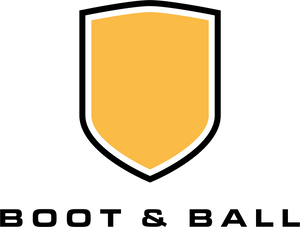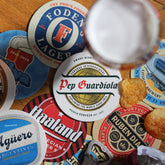Group G

Brazil have now gone 4 tournaments without winning the World Cup. Not even making the final. But their team looks as strong as it has done since 2002. World class players all over the pitch from Alisson/Ederson to Casemiro and Neymar. Serbia will be doing their best to thwart them in the group with a forward line that can cause serious trouble - Vlahovic & Mitrovic.
Switzerland and Serbia have history and their rivalry will be renewed once again. Cameroon will be looking to surprise their Group G rivals via Aboubakar, Ekambi and Onan all able to produce world class performances.

Brazil
No World Cup is complete without Brazil. A generation hasn’t seen them lift the big one. Can they reclaim their crown?
Brazil and the World Cup go hand in hand. You can’t have one without the other. Brazil are the most successful side in the competition winning it 5 times since its inception and have made every single tournament without fail but the last time they lifted the famous trophy was back in 2002 with Ronaldo (the original), Ronaldinho, Cafu, Dunga and Roberto Carlos. Iconic names and frightening to face, as England’s David Seaman will attest to. 20 years is a long time in football terms though and Brazil have been knocked out by European foes each time; the last 4 champions have come from the same continent to add insult to injury.
Brazil are starting to look like their hugely entertaining but also intimidating selves again. And that is a frightening prospect for Europe’s top sides. Former winner Kaka is bullish about Brazil and even Argentina’s chances but admits the birth of the Nations League is preventing them playing top tier matches against European foes. France’s Mbappe believes European sides have the upper hand because "Argentina and Brazil don't have that level of competition in South America, the football is not as developed as in Europe, that is why most recent World Cup winners have been Europeans." Brazil manager Tite bit back: "We don't have, with all due respect, Azerbaijan to play. We don't have anyone that gives you a break. The qualifiers here have a much higher degree of difficulty than the group stage [of European qualifying]." On this occasion it is hard not to agree with Tite, the South American section is although easier to qualify due to more spots but more gruelling a campaign and more likely to face stiffer opposition. Anyway, Brazil and France could meet in the final as they did in 1998 – would be some viewing.
Brazil should finish op of the group (although Serbia and Switzerland will be tough tests) and then from there they may face South American foes Uruguay in the last-16, avenge their 2014 7-1 reverse against Germany in the quarters, their biggest rivals Argentina in the semi-finals and then, well who knows? Although it has been European opposition which has proven a stumbling block, it could be Messi’s Argentina which thwarts them this time.
Key players: Who isn’t a key player? Neymar has been the golden player for the past decade, carrying the burden of a nation’s hopes on his shoulders during the last couple of World Cups. He is still at the top his game forming a formidable front 3 of Neymar, Messi and Mbappe for his club side. But this time he has support, and he will want to ensure that his legacy is secured with a World Cup title to follow success previously at the Olympic Games and in the Confederations Cup. Neymar brings an abundance of flamboyant skills to the pitch as well as the ability to take the ball past defenders and has 74 goals for his side at the time of writing. Gabriel Jesus, given a more prominent role at club Arsenal, has burst into life as an out and out centre forward – perhaps someone who can lead the line and provide a focal point for attacking players such as Barcelona’s Raphinha. It is Richarlison who is favourite to lead the line having provided some much-needed back-up to Harry Kane.

Cameroon
Former legend Samuel Eto’o demands results…
Okay so let's take a look at the positives. Cameroon beat a talented Algeria side on away goals to make the tournament, meaning that one of Africa's best players Mahrez missed out on the tournament. Next, they have a host of talent playing across Europe’s top leagues including Inter Milan’s André Onana, Bayern Munich’s Eric Maxim Choupo-Moting, Karl Toko Ekambi of Lyon (who scored the dramatic late-minute winner against Algeria) and Napoli’s Andre-Frank Zambo Anguissa. Brentford’s Bryan Mbuemo has committed his allegiance to the Cameroon national team bolstering their attack. Thirdly one of the country's top scorers is still playing - Vincent Paté Aboubakar holds the captain’s armband and is the country’s second top goal scorer of all time (33). He will be emulating their former star Samuel Eto’o who leads the way with 54.
Secondly, Cameroon haven’t won a World Cup match since 2002. No African side got out the group stage last time out either (although arguably African nations are heavily underrepresented at the World Cup compared to their European counterparts.) So there needs to be a breakthrough and Cameroon will need to raise their game to get it.
So, what are their chances?
Their group could have been more favourable, but they will need to show a similar team spirit as they did in qualification to oust their opponents, develop a clear style of play and tactical nous, led by manager Rigobert Song, and star players will have to adopt a ruthless approach in front of goal as they did at AFCON. Facing Brazil for a third time will be daunting, but the Indomitable Lions will be hoping for more luck this time around. They have never faced Serbia or Switzerland at the World Cup so it will be interesting how they do against their European foes.
Verdict: Group stage (4th – 0 points)
Key players: Vincent Aboubakar will look to lead the forward line for Cameroon having hauled an impressive 8 goals at the AFCON championships earlier this year, 3 more than compatriot Karl Toko Ekambi with 5 goals. Aboubakar has been a reliable goalscorer wherever he has played including Porto where he spent 5 seasons; it was surprising to see he didn’t make a move to the Premier League or La Liga. He now plies his trade at Al Nassr in the Saudi Pro League and won’t have far to travel for the World Cup! He has won titles with Besiktas, Porto and his country to boot. Able to score with right foot and left-foot, he can often find space in the box – he is also powerful in the air and is a target man for the Indomitable Lions. Bryan Mbuemo is an important addition and has been in sparkling form for Brentford in the Premier League in the past couple of seasons grabbing 6 goals and making 7 assists. Between those two will be a concern

Serbia
Could this be Serbia’s best ever generation?
Their defence on the other hand can be suspect - they conceded 9 goals in qualifying. Serbia like to play three at the back with Milenkovic (Fiorentina), Veljkovic (Werder Bremen) and Pavlovic (Red Bull Salzburg) but they will need to be more robust in their opener against Brazil. Goalkeeper Rajkovic will need to show more of his Ligue 1 form if selected between the sticks (he has achieved clean sheets into double figures over the past three seasons), his form secured a move to La Liga side Mallorca.
So, what are their chances?
Verdict: Group G stage runners up (2nd – 6 points) Semi-Finals

Switzerland
The Swiss play and look like a top-tier side. But why do they falter when it matters?
So, what are their chances?
Verdict: Group stage (3rd – 3 points)
Key players: Granit Xhaka. At club level Xhaka has been through the mill, being booed by home support to lauding all the plaudits this term. At international level things seem a little calmer (despite an alleged tactical dispute with Yakin during the summer’s Nations League campaign). Xhaka was part of the Swiss team that won the 2009 FIFA U-17 World Cup and has scored 12 goals in over 100 appearances for the national side. Xhaka is often deployed in a deep midfield role but for club this season you can see he forays forward already bagging a goal for Arsenal. Xhaka will hope to lead his side to glory but may have to temper his and his teammate’s reactions when facing Serbia; FIFA opened disciplinary proceedings against Xhaka and Xherdan Shaqiri after they celebrated their goals during a 2-1 World Cup win over Serbia by performing an Albanian nationalist symbol. This could be a fight for second spot, so a huge game awaits both sides in the group stage.























